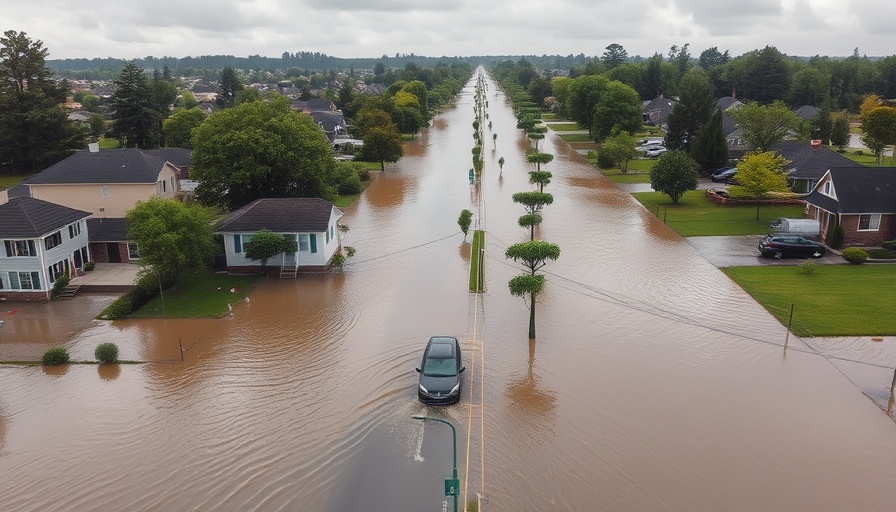
Understanding Flood Zones: What Buyers Need to Know
Buying a house in a flood zone poses unique challenges and opportunities. Flood zones are designated areas identified by the Federal Emergency Management Agency (FEMA) based on the likelihood of flooding. Properties in these zones require careful consideration of financial implications, safety, and future resale potential.
The Risks: Insurance and Resale Challenges
One of the primary risks of purchasing a property in a flood zone is the high cost of flood insurance, which is often not only advisable but legally mandated in high-risk areas. Homeowners may find that even if they secure a mortgage, their lender requires them to obtain flood insurance that can range significantly in cost, deeply impacting their overall housing expenses. Furthermore, potential buyers should also be aware that properties in flood zones can face challenges when it comes to resale. Many buyers may be hesitant to take on the risks associated with properties that are prone to flooding.
Advantages of Buying in Flood Zones
Despite the risks, there can be notable advantages to acquiring a home in a flood zone. Many properties may be priced lower than comparable homes outside of these areas. This is especially true in scenic locations near water bodies that are often highly desirable. Whether it's a vacation home or a primary residence, owning property on a lake or river can provide unique lifestyle perks that may outweigh the potential issues.
Researching Before You Buy: Essential Steps
Doing thorough research is crucial when considering a home in a flood zone. Prospective buyers should start by checking flood maps and understanding FEMA's designations. It’s also wise to look into the property’s flood history—has it experienced flooding in the past, and what kind of damages occurred? Speaking to previous owners and neighbors can give valuable insights into local experiences and attitudes toward flooding.
Practical Tips for Potential Buyers
Investing in a home in a flood zone doesn’t mean foregoing all safety measures. Homeowners can make strategic renovations and updates, such as elevating the home or installing storm-resistant features. Additionally, connecting with experienced real estate agents or offices such as Redfin or Zillow can offer insights about the local real estate market and available properties.
Future Trends: Growing Awareness of Flood Risks
As climate change causes unpredictable weather patterns, awareness and technology related to flooding risks are improving. Many cities are implementing stricter regulations regarding flood zone construction, making it imperative for home-seekers to stay informed about future trends. Understanding how these changes might affect property values could influence a buyer's decision significantly.
A Final Thought: Is It Worth It?
Ultimately, deciding whether or not to purchase in a flood zone demands weighing personal priorities. For some, the allure of a tranquil lakeside home or a scenic river view far outweighs the risks involved. Adapting to these risks with knowledge and safety precautions can guide buyers toward making informed, confident real estate investments.
Call to Action
For anyone considering a property near water, take the time to investigate flood implications. Understanding your options, consulting experienced real estate professionals, and preparing for potential challenges can empower you to make educated choices. Explore your real estate options and take that first step toward your dream home today!
 Add Row
Add Row  Add
Add 




Write A Comment